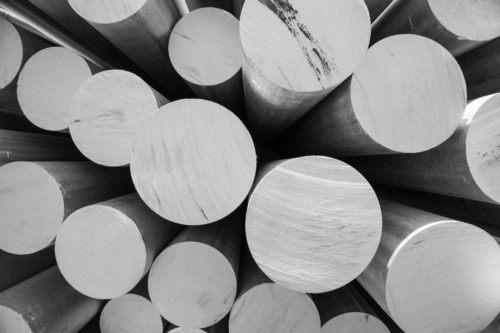A Biased View of Stahl Specialty Company
A Biased View of Stahl Specialty Company
Blog Article
Some Ideas on Stahl Specialty Company You Need To Know
Table of ContentsSome Known Questions About Stahl Specialty Company.The 5-Second Trick For Stahl Specialty CompanyThe Single Strategy To Use For Stahl Specialty CompanyThe smart Trick of Stahl Specialty Company That Nobody is Talking AboutFascination About Stahl Specialty Company
The subtle difference hinges on the chemical content. Chemical Contrast of Cast Light weight aluminum Alloys Silicon promotes castability by lowering the alloy's melting temperature level and enhancing fluidness during spreading. It plays a critical role in enabling elaborate mold and mildews to be loaded properly. Additionally, silicon adds to the alloy's toughness and use resistance, making it valuable in applications where resilience is important, such as automotive parts and engine elements.It also boosts the machinability of the alloy, making it less complicated to refine into ended up products. In this method, iron adds to the general workability of aluminum alloys.
Manganese adds to the toughness of aluminum alloys and improves workability. It is typically used in functioned light weight aluminum products like sheets, extrusions, and accounts. The presence of manganese aids in the alloy's formability and resistance to breaking during fabrication processes. Magnesium is a light-weight element that supplies strength and effect resistance to aluminum alloys.
It enables the production of lightweight parts with excellent mechanical homes. Zinc improves the castability of aluminum alloys and assists control the solidification procedure throughout casting. It boosts the alloy's toughness and hardness. It is frequently located in applications where complex forms and great details are needed, such as decorative spreadings and certain automotive parts.
Stahl Specialty Company Can Be Fun For Everyone
Since aluminum-silicon alloys have great spreading residential properties, high gas residential or commercial properties, easy procedures, and exceptional rust resistance, aluminum-silicon alloys are most frequently used in the die-casting industry in the house and abroad. At the very same time, aluminum-silicon alloys are likewise reasonably early and commonly recognized alloys established and utilized in die-casting. After continual research study and enhancement, many of the existing worldwide mainstream aluminum-silicon alloys have actually been wrapped up and are absolutely nothing greater than A356, A360, A380, ADC12, B390, and A413.
The primary thermal conductivity, tensile strength, yield stamina, and elongation differ. Select suitable raw materials according to the performance of the target product produced. Among the above alloys, A356 has the greatest thermal conductivity, and A380 and ADC12 have the most affordable. The tensile restriction is the opposite. A360 has the most effective return stamina and the highest possible prolongation price.

The Best Guide To Stahl Specialty Company
In precision spreading, 6063 is appropriate for applications where elaborate geometries and top notch surface area coatings are critical. Instances include telecommunication units, where the alloy's remarkable formability enables streamlined and visually pleasing layouts while preserving architectural stability. Similarly, in the Lights Solutions market, precision-cast 6063 parts produce elegant and reliable illumination fixtures that need intricate forms and great thermal performance.
(https://disqus.com/by/stahlspecialc/about/)
The A360 exhibits superior prolongation, making it ideal for facility and thin-walled parts. In accuracy spreading applications, A360 is well-suited for sectors such as Customer Electronics, Telecommunication, and Power Tools.

In precision casting, light weight aluminum 413 beams in the Consumer Electronic Devices and Power Equipment industries. This alloy's remarkable rust resistance makes it an outstanding option for exterior applications, ensuring durable, resilient items in the stated markets.
Stahl Specialty Company for Dummies
As soon as you have actually decided that the light weight aluminum die casting process appropriates for your project, a critical following step is picking one of the most proper alloy. The aluminum alloy you select will considerably influence both the spreading process and the buildings of the last product. As a result of this, you must make your decision very carefully and take an educated strategy.
Determining the most Look At This ideal light weight aluminum alloy for your application will indicate considering a broad array of features. These relative alloy attributes follow the North American Die Spreading Organization's guidelines, and we have actually divided them into 2 categories. aluminum metal casting. The very first category addresses alloy features that influence the manufacturing procedure. The 2nd covers qualities impacting the homes of the last item.
The alloy you pick for die spreading straight affects a number of elements of the casting procedure, like just how simple the alloy is to work with and if it is prone to casting problems. Warm breaking, likewise referred to as solidification breaking, is a typical die spreading problem for light weight aluminum alloys that can cause inner or surface-level tears or splits.
The Buzz on Stahl Specialty Company
Specific light weight aluminum alloys are a lot more prone to warm splitting than others, and your choice should consider this. An additional common issue located in the die spreading of aluminum is pass away soldering, which is when the actors stays with the die wall surfaces and makes ejection challenging. It can damage both the cast and the die, so you ought to search for alloys with high anti-soldering residential properties.
Deterioration resistance, which is currently a remarkable feature of light weight aluminum, can vary substantially from alloy to alloy and is a necessary particular to consider depending on the ecological conditions your product will be exposed to. Wear resistance is one more property typically sought in light weight aluminum products and can set apart some alloys.
Report this page